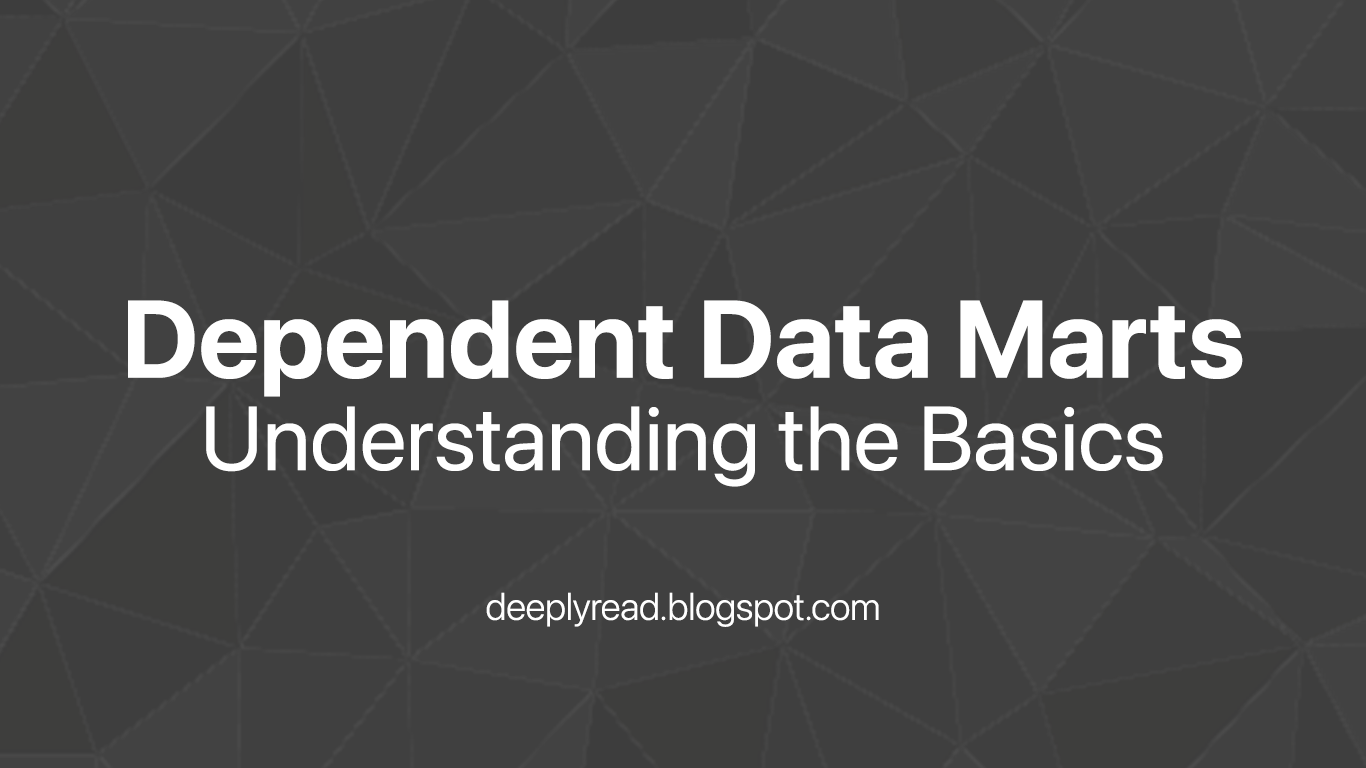Data marts are smaller, subject-specific data warehouses that serve individual business units. They are often created to support specific departments, such as marketing or finance. In this article, we will focus on dependent data marts and examine the key characteristics and benefits of these data marts.

What are Dependent Data Marts?
Dependent data marts are data marts that rely on a larger centralized data warehouse. This means that they are dependent on the data stored in the centralized data warehouse and cannot function without it. In other words, they are like satellites that orbit around a central data warehouse.
Key Characteristics of Dependent Data Marts
Dependent data marts have several key characteristics that set them apart from other types of data marts:
- Centralized Data Warehouse Dependency - As mentioned earlier, dependent data marts rely on a centralized data warehouse and cannot function without it. This means that all data in the dependent data mart must be sourced from the centralized data warehouse.
- Subject-Specific - Just like other data marts, dependent data marts are subject-specific and cater to the needs of specific business units or departments. For example, a dependent data mart for the marketing department would only contain data relevant to marketing.
- Data Replication - Dependent data marts replicate data from the centralized data warehouse, so they have a duplicate of the data stored in the central repository.
- Improved Performance - By replicating only the data required by specific business units or departments, dependent data marts can significantly improve performance compared to a centralized data warehouse that serves the entire organization.
Benefits of Dependent Data Marts
There are several benefits to using dependent data marts, including:
- Improved Data Access - Dependent data marts allow specific business units or departments to access the data they need more quickly and efficiently.
- Reduced Data Overhead - By replicating only the necessary data, dependent data marts can reduce the overhead of data storage and management compared to a centralized data warehouse.
- Enhanced Data Analysis - Dependent data marts make it easier for specific business units or departments to analyze data relevant to their area of focus.
- Greater Data Security - With dependent data marts, sensitive data can be kept separate from other data, improving security and reducing the risk of unauthorized access.
Conclusion
Dependent data marts are a type of data mart that rely on a larger centralized data warehouse. They offer several key benefits, including improved data access, reduced data overhead, enhanced data analysis, and greater data security. By focusing on the needs of specific business units or departments, dependent data marts can help organizations optimize their data management strategies and make more informed decisions.
In conclusion, dependent data marts play a crucial role in organizations that rely on large amounts of data. By breaking down data into smaller, subject-specific data marts, organizations can improve performance, efficiency, and data analysis. It is important to consider dependent data marts as part of a comprehensive data management strategy, as they offer many benefits and can help organizations achieve their goals more effectively.